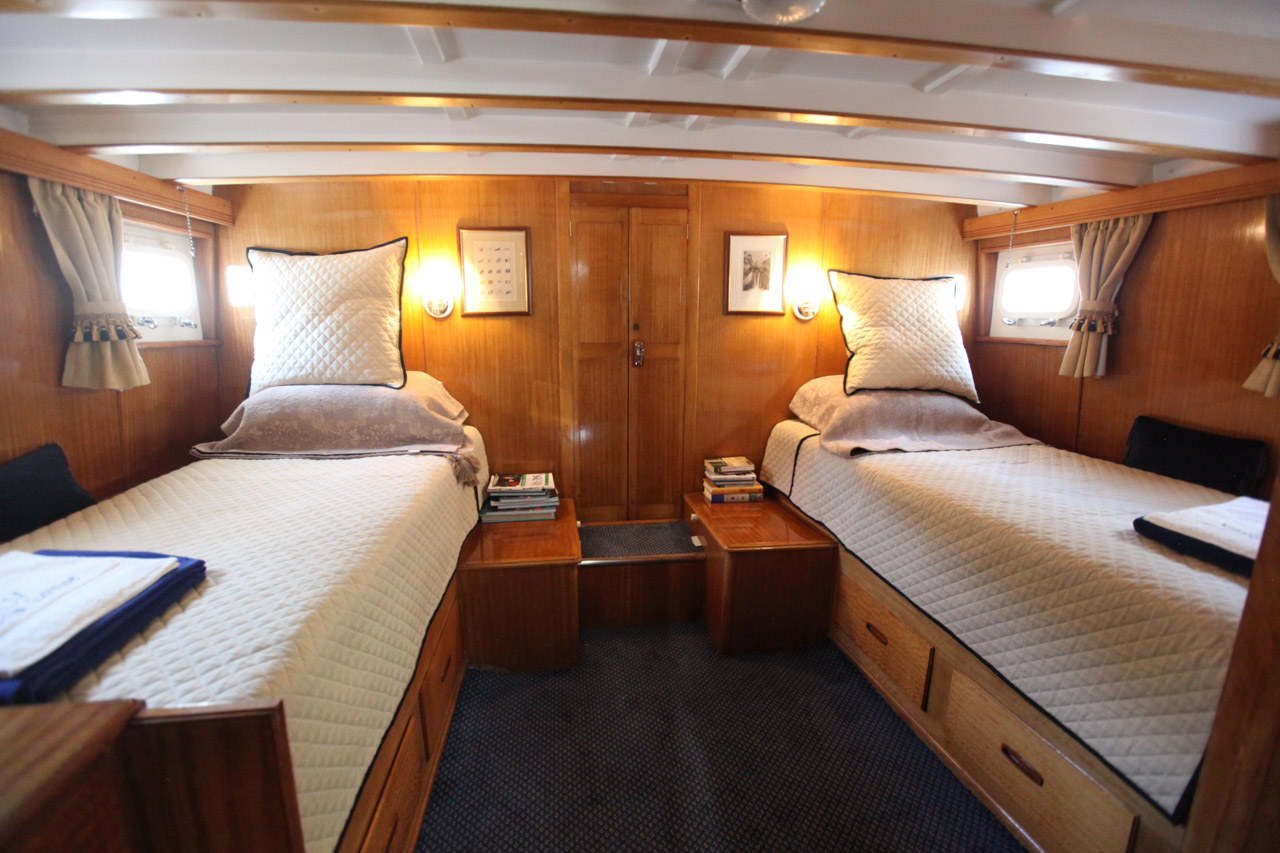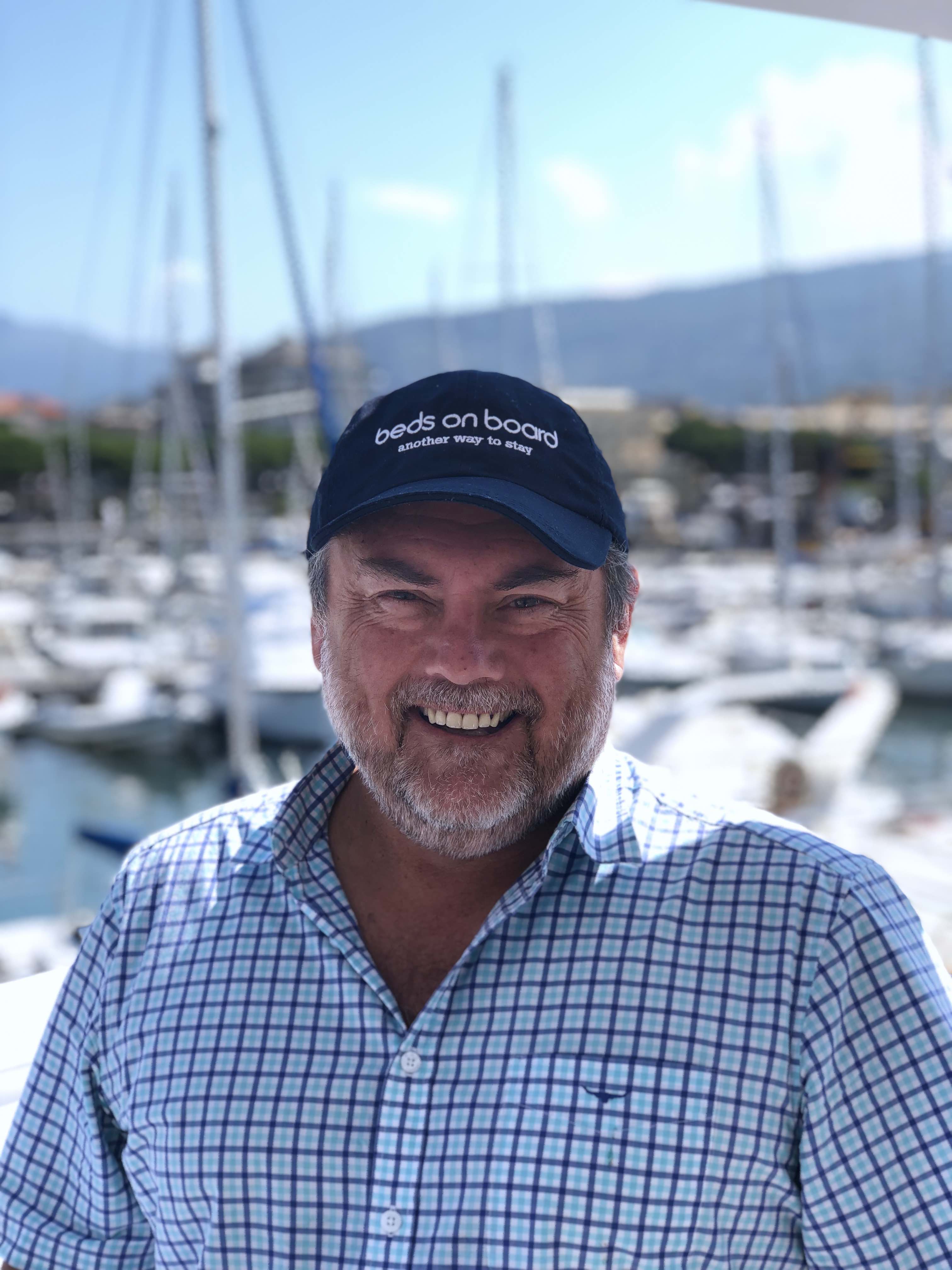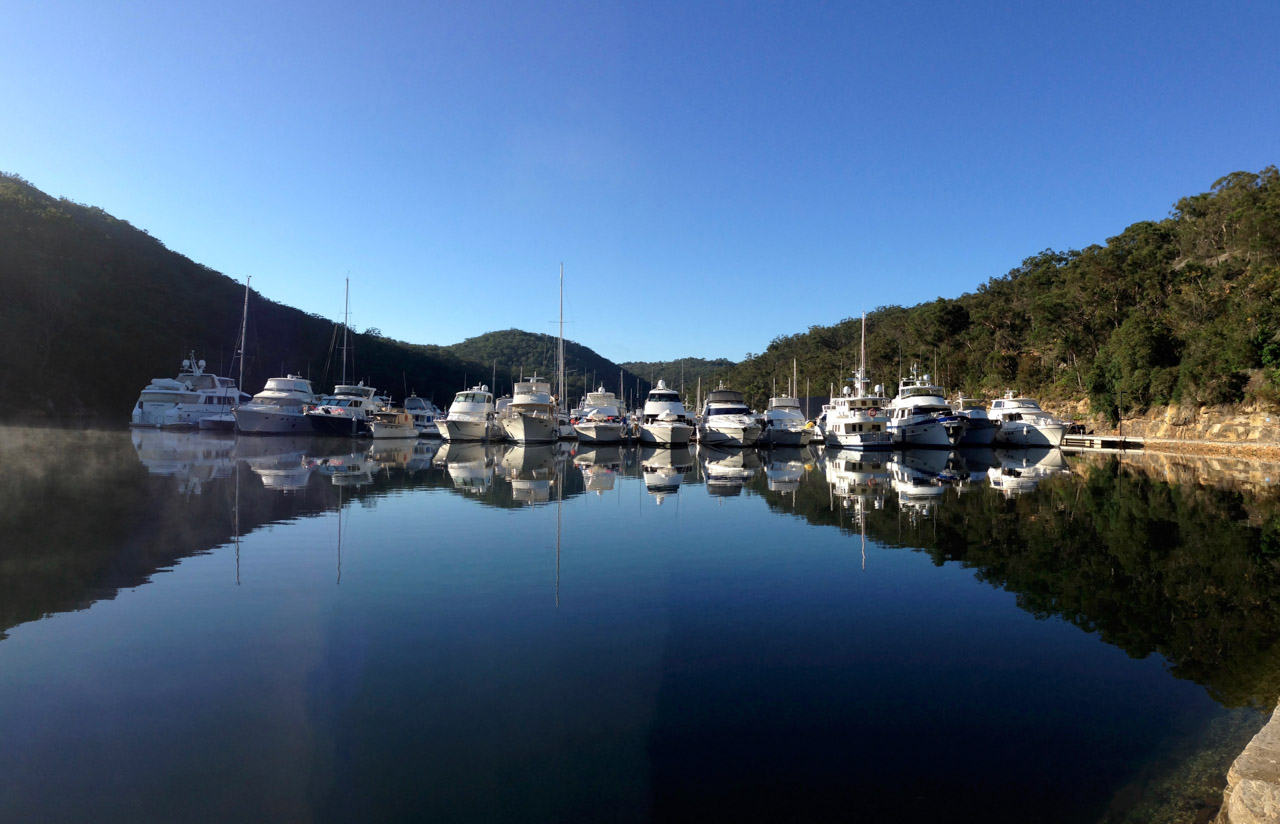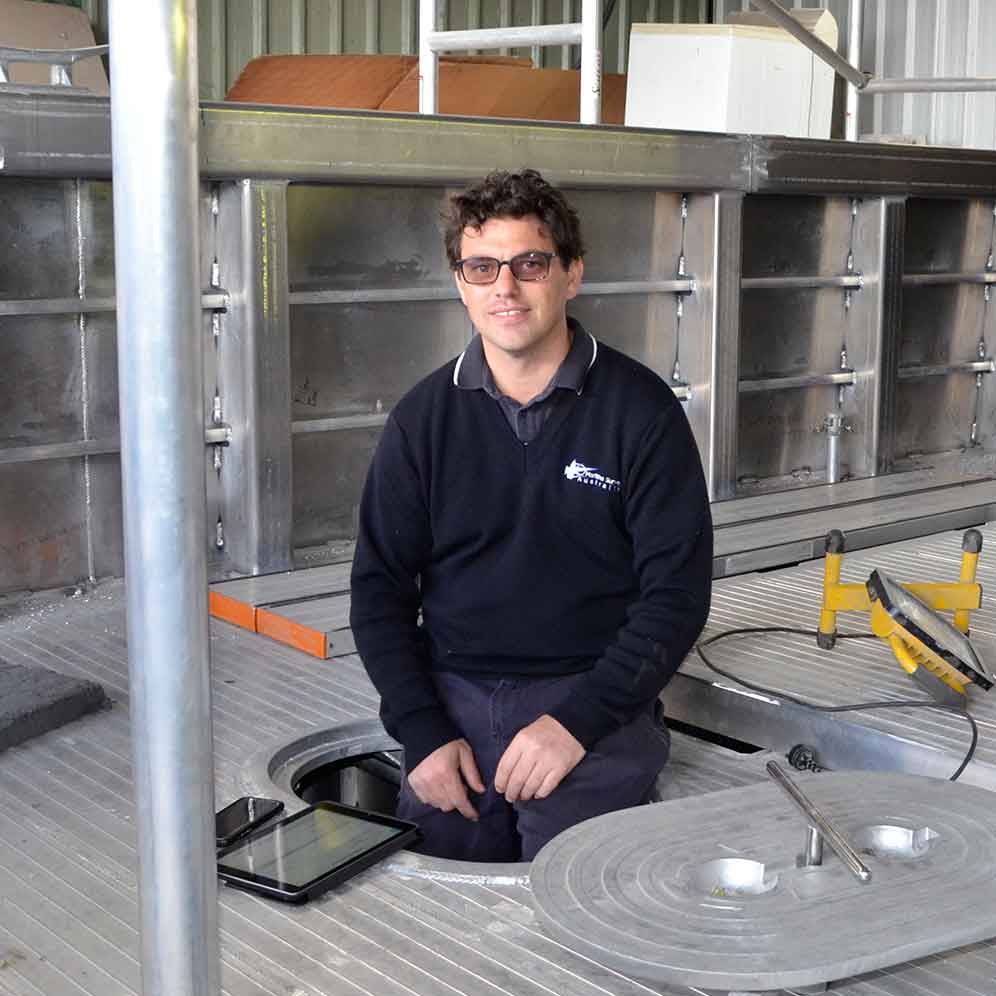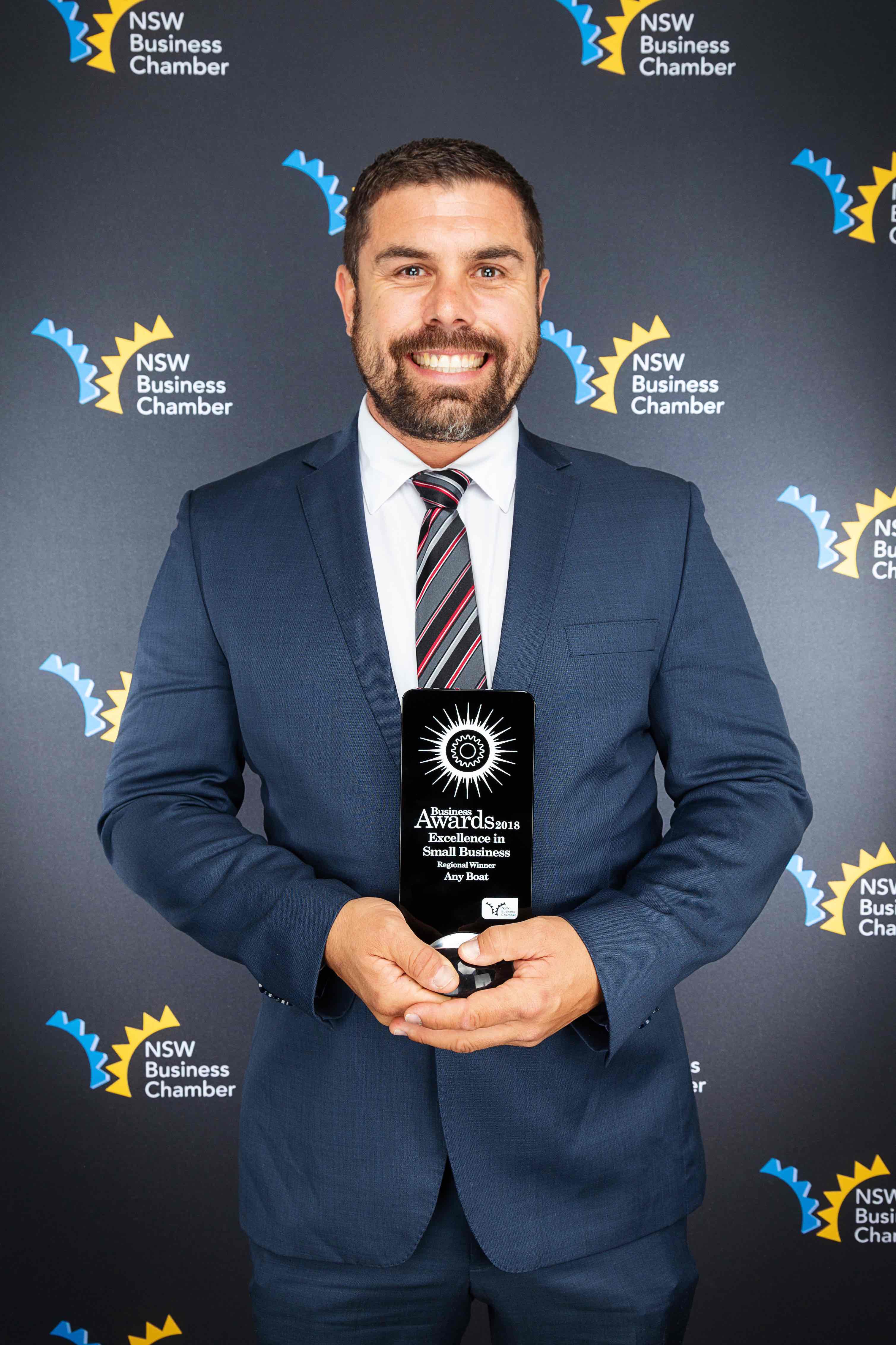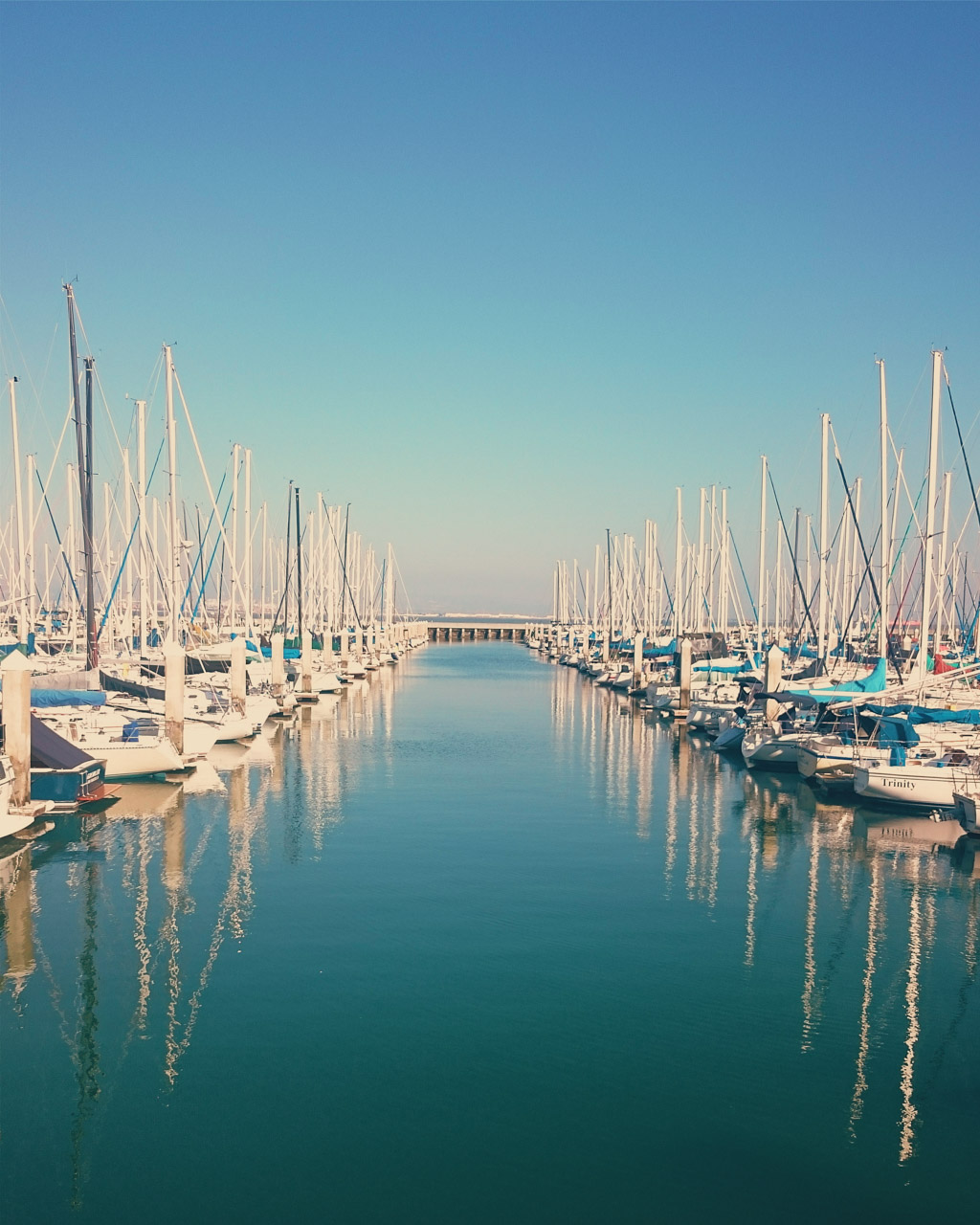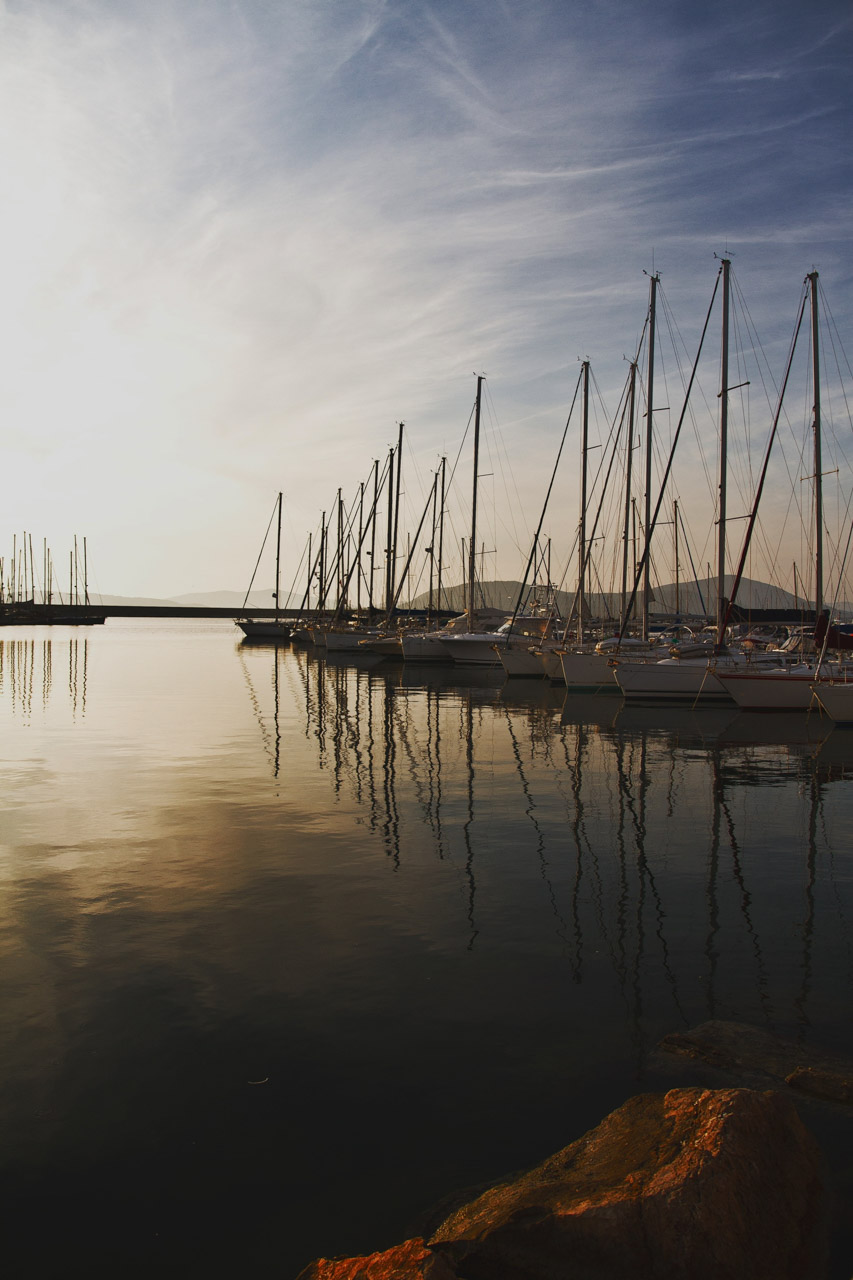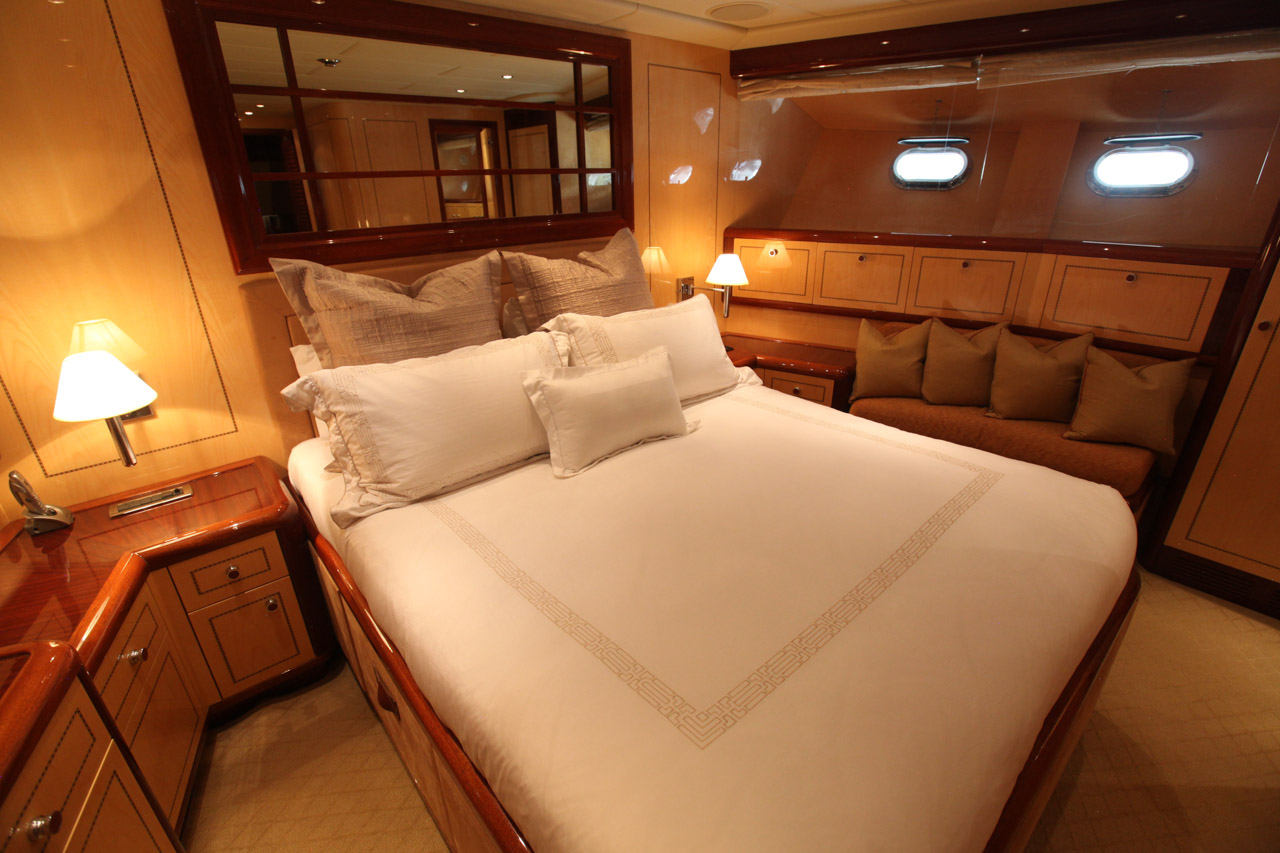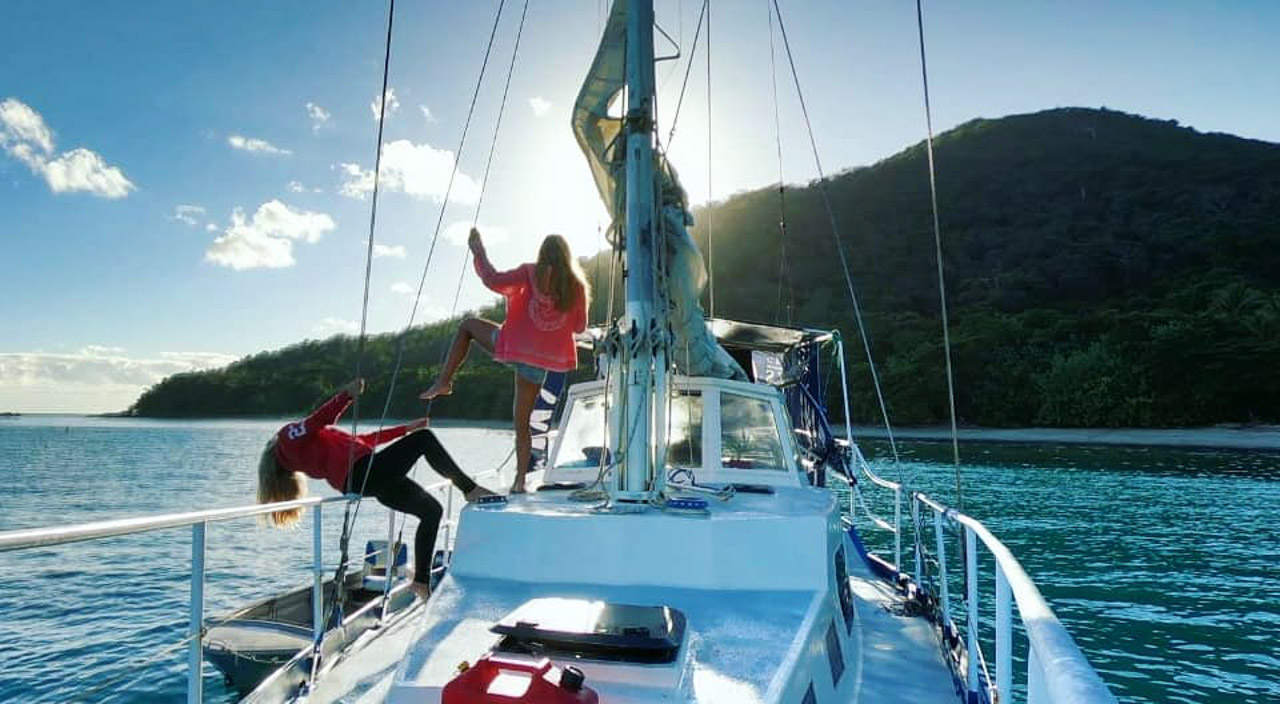Berthing pains
Could renting the family yacht out to overnight guests at the marina be a way for thousands of Australians to offset the costs of ownership? Brittany Cooper investigates how the spread of the sharing economy is playing out on our waterways.
23 July 2018
The sharing economy business model is sweeping across the world, transforming how we eat, sleep, travel, work and commute. Over two thirds of Australians exchange their labour and assets for money through platforms like Airbnb, Uber, Deliveroo, Airtasker, and Car Next Door, according to research by peer-to-peer lender RateSetter.
In Europe and the USA, the sharing economy has provided a new way for yachties to offset the costs of boat ownership, maintenance, and marina fees, simply by renting out berths on board when their pride and joy is otherwise sitting empty.
While boat sharing platforms are ready to offer short term accommodation on recreational boats in Australia, commercial vessel operators warn of the need for proper safety and environmental regulation in the sector. It’s already happening under the radar at some marinas here, advertised on Airbnb and Gumtree, while state and national regulatory bodies are unlikely to detect cases, let alone impose penalties.
On average, privately owned yachts sit idle over 90 percent of the time. Many Australian boaters see the opportunity to make money from their under-used asset, but intend to wait until the rules here change to allow this kind of activity.
Under current rulings of the Australian Maritime Safety Authority (AMSA), receiving payment for the use of your yacht is a commercial operation – even if your guest never unties mooring lines, and even if the income is in the form of a case of beer.
Moreover, if the vessel is not in commercial survey, the owner, effectively a freelance worker, is breaking the law. As such, should anything go wrong – an accident, damages to the vessel or serious injury to guests – the boat’s insurance cover may well be non-existent, with public liability falling directly on the owner.
It is also important to remember that anyone who earns money on these platforms is required to pay taxes on it.
How long before we see boat sharing given a fully legal avenue with insurance cover, changing the game of boat ownership in Australia?
In May this year AMSA proposed a solution: a legal loophole known as Exemption 27, to allow a recreational vessel (under 24 metres) to be rented out to paying guests for up to two weeks, so long the owner declares it safe, and promises it will stay tied up at the marina. EX27 negates the requirement for any expensive survey inspections.
Marine surveyors and commercial operators have pointed out potential safety issues this proposal leaves wide open in its current wording, as well as the possibility for marina owners to get into murky waters with the likelihood of guests or owners discharging untreated effluent into waterways if there are no pump-out facilities.
For details of Exemption 27, go to amsa.gov.au.
Below, we hear from key stakeholders on the marine BnB model’s risks and opportunities.
- AMSA Spokesperson
- Alan Blake, President of the Boating Industry Association (BIA)
- Darren Vaux, Beds on Board Australian representative and Vice President of the Marina Industries Association (MIA)
- John Kavanagh, Director of Pacific Maritime Lawyers and former CEO of Flote
- Benjamin McGregor, Founder of Yachtstay
- Mick Uberti, Marine Surveyor with Maritime Survey Australia
- Daniel Da Silva, Vice President of the Commercial Vessel Association
- Ian Ford, BIA CV Division
- Shaun Tiedemann, General Manager of Derwent Sailing Squadron in Hobart
- Mike Griffiths, owner with Beds on Board since October 2016, at Lymington Yacht Haven in Hampshire.
- Ed Petersen, Founder of Aussie Floating Homes
1. AMSA Spokesperson
AMSA considers that applying the full extent of the Marine Safety (Domestic Commercial Vessel) National Law Act 2012 requirements, including the requirement to obtain a certificate of survey and certificate of operation, to vessels that are berthed in marinas and being used as short-term accommodation, may not be appropriate for this kind of operation. AMSA considers it is more appropriate to apply regulatory standards that still ensure minimum safeguards are in place.
AMSA recently asked for public submissions on a proposal, known as Exemption 27, that we hope better aligns the requirements, and safety standards that vessel owners and operators need to meet, to the risk associated with this use of a vessel.
Under the current arrangements a vessel that is hired out for short term marina accommodation in exchange for money, or other compensation, would be considered a domestic commercial vessel on the basis that it is being used in connection with a commercial activity. If it is being used for a commercial purpose without the certificates it needs, or without an appropriate exemption, then the owner of the vessel would be operating contrary to the National Law.
The proposed exemption does not leave the sector unregulated. Under the draft Exemption 27, owners of vessels that are being used to provide short term marina accommodation would be exempt from the requirement to have a certificate of survey and certificate of operation. Importantly, the vessels will still have to meet a minimum safety standard, based on a set of conditions, including that:
- the vessel is berthed at a marina and can be accessed on a ‘step on, step off’ basis
- the vessel owner implementing and maintaining a written safety management system
- the vessel owner obtains written approval from the marina authorising the use of the vessel for short term accommodation
- the vessel complies with specific standards in respect to electrical, gas and fire safety
- a person not being able to operate the vessel, or start the engine, at any time the vessel is hired out.
Vessel operators will still also need to comply with all other obligations including, for example, the requirement to:
- obtain a National Law unique identifier and display it on the vessel
- comply with the general safety duties in Part 3 of the National Law
- comply with state and territory laws that apply to the vessel, including local waterways management laws, environmental management, workplace health and safety and gas and electrical safety
- pay any levies and/or fees for the vessel which the owner may be liable to pay to AMSA and state/territory marine safety agencies.
During the consultation period, AMSA received a large number of submissions from stakeholders across the boating community, including vessel operators and industry groups, marina owners, accredited marine surveyors, recreational vessel owners and users, and state and territories agencies. We’re now considering the feedback received and will provide further information on our next steps shortly. A consultation feedback report, setting out AMSA’s response to all submissions, will be published in due course.
2. Alan Blake, President of the Boating Industry Association
In every sector of the economy, the opportunity for consumers – and businesses – to connect with and transact with their peers via online platforms is becoming increasingly prevalent. With a multitude of platforms connecting people, it is likely that you will have participated in the sharing economy in some way, be it an alternate to a traditional taxi or finding a room for the night.
The marine industry has been debating how it can embrace the sharing economy and how to be on the front foot when it comes to developing a framework in which aspiring participants can interact with the current regulatory regime in which the industry operates. A driver of this debate is the proposal from AMSA to develop a set of regulatory requirements for one element of the sharing economy that already has a presence in the marine industry, that of accommodation-only offerings on boats.
AMSA’s proposal, known as Exemption 27 (EX27), is intended to provide clarity as to how the sharing economy should be operating in what is considered to be commercial vessel setting. It is a risk-based solution designed to define a modern approach to a traditionally conservative regulatory regime, learning from the difficulties experienced in other sectors, such as the taxi industry, in their own management of new business models.
Debate among BIA members and the marine industry generally has been extensive, with at times very diverse opinions being expressed.
In making a submission to AMSA, BIA has balanced commentary from a wide range of members, seeking to present a positive response to efforts to better manage the sharing economy, while addressing issues raised by members, particularly in the commercial vessel sector. BIA’s submission focused on the suitability of EX27 in addressing issues related to safety, the environment, qualifications, enforcement and impacts to businesses.
3. Darren Vaux, Beds on Board Australian representative and Vice President of the Marina Industries Association (MIA)
I first became involved with Beds on Board after researching a paper called ‘Who are the future boaters’ in 2016. It became clear that the industry needed to recognise the new consumer behaviour, particularly in younger people. The traditional pathway to boat ownership of buying a series of larger boats from a young age was more a behaviour of the Baby Boomer generation. Consumers are moving towards subscription services, shared ownership, usage on demand, all of which have been adopted and disruptive to other industries. My research identified bedsonboard.com which had started as a peer-to-peer platform that connected private boat owners with accommodation seekers. What attracted me to them was that they were boaters and sailors and were focussed on making boating more accessible and affordable. They were passionate about sharing the boating and marina lifestyle. We instantly hit it off with them and brought the concept to Australia in January 2017. In Australia alone we see the market potential of around AU$30 million per annum and there is demand across the whole spectrum of boat sizes.
For marina owners there is a wide range of advantages including bringing new customers to their facility who will spend money in their dining and retail outlets. Marinas may also charge a service fee to boat owners if they provide various services to support the activity.
From the boat owner’s point of view, they get income to offset the costs of boat ownership. At the same time, it gives boat owners a new interest in their boat. They also have at the added benefit of the boat being ‘guest ready’ when they go to use it themselves.
It’s very easy to sign up, you just need to take some great photos of the inside of your boat and write a great description of the boat and the marina. There are plenty of examples on the site. Our support team also helps get the listing right.
From a guest’s point of view, it’s just a great experience of staying on a boat in a marina. For the seasoned boater it’s a familiar environment, staying in great marinas around the world. For guests considering buying a boat it’s a great way to experience the boat and a new way of trying different brands.
The boat sharing concept is not for everyone. The majority of owners instantly get it and see the potential. For those who are initially negative about the idea it is born out of a fear of the unknown.
The system ensures that the guests are bona fide, though pricing, bonds, rules and monitoring of communications. The experience in the UK and Europe is that offering accommodation only on boats at marinas is low risk, and a win-win for all involved.
Regarding any concerns about pollution management, State and Territory Laws are stringent in relation to the discharge of sewage into waterways. Likewise, surely no respectable marina is going to permit its customers to discharge raw sewerage into their marina and as such I think the fears of commercial vessel operators are unfounded.
The private boats we currently have listed on the platform Australia are for demonstration purposes only. We only take bookings for boats that have the appropriate survey classification. Once Exemption 27 has been approved we will build the fleet of boats on offer in compliance with the exemption and start offering accommodation on these boats through the platform.
It’s a fair consumer expectation that the boat sharing phenomenon will ultimately make boat ownership more affordable. We can expect sharing models of all kinds continue to grow, i.e. subscription/club models, shared equity ownership, and peer-to-peer sharing. We need to find new ways to make boating accessible, attractive and affordable for more people.
4. John Kavanagh, Director of Pacific Maritime Lawyers and former CEO of Flote
My experience with the sharing economy began with a not-for-profit boat sharing platform called Flote. My business partner and I shut down Flote in 2016 when it became clear that marine safety regulators, both state and AMSA, did not have any policy on the sharing economy for recreational vessels. Without such a policy, the commercial risk became unmanageable. I had a meeting with senior policy staff in Canberra that merely showed me that Canberra is a long way from the sea.
When it comes to boat sharing, we are years behind both Europe and the USA. It seems that AMSA still has no policy on how to deal with the share economy for recreational vessels, and continues to be reactive rather than being a policy leader. The catalyst for the Exemption 27 proposal is commercial pressure, rather than leadership. Given the lessons of Uber and Airbnb, one would have thought a more proactive approach by regulators in maritime fields would be sensible. After all, the technology is there, and people are going to do it anyway.
The sharing economy is here to stay. It is at present entirely unregulated and unsupervised. The centuries-old distinctions of recreational and commercial are frankly inadequate to deal with the challenges posed by the share economy. The approach by AMSA is to treat the share economy as a commercial operation, when it clearly isn’t. For example, I am not aware of any commercial operator who offers accommodation on marinas as their main source of income. It is the technology alone that makes this business practicable, and existing commercial operators need to adapt.
Unfortunately, the legal distinction between recreational and commercial is now a jurisdictional boundary between the Commonwealth and the States. It is also a jurisdictional boundary for marine insurance, which is very different depending upon whether a vessel is a pleasure craft or not. Both of these issues mean that the challenges for anybody seeking to operate in this country and the share economy are significant.
I don’t think Beds on Board’s proposition is particularly novel or risky for any party. Quality and risk in the sharing economy is based upon reviews and feedback.
If boats are in poor condition, then people who use them will soon tell the world. I am not aware of any deaths or injuries associated with staying on boats in marinas. If AMSA had an evidence-based policy, they might know the answer to that. I think the safety issue is heavily overstated by regulators and existing interests (commercial operators). It is exactly what taxi operators said: ‘the world will end if Uber is not banned’. The world didn’t end. Instead, taxi operators faced real competition and became better.
The sharing economy is a regulatory and commercial disruptor, and the regulatory system must move with the times. Failing to do so will be a drag on the economy and prevent any significant development in the sector. At the risk of repetition, people are going to participate in the share economy anyway and the AMSA and the states need to have a plan. At present, they don’t. It is a simple buck-passing exercise between the two levels of government.
The real risk is not that an Australian start-up will ‘open the floodgates’; the real risk is that a foreign operator with plenty of capital (like an Uber or an Airbnb) will simply start operating in Australia and effectively thumb its nose at Australian marine safety regulators. Better to be ahead of that curve, and encourage the development of local operators with sensible, risk-based guidelines.
In my respectful view, it is the states that should be setting the policy boundaries for the use of recreational vessels in the share economy. Until that happens, you will see Australia significantly lagging behind other countries, to the detriment of the boating industry in general and existing commercial operators as well.
5. Mick Uberti, Marine Surveyor with Maritime Survey Australia
In the sharing economy, customer feedback determines whether something is good and safe. But in this case, comparing boat sharing to Uber is a bit unfair because every car goes through registration and is built to a standard; its build plate must be compliant and audited.
Whereas on a recreational boat the build plate is not audited. Their accuracy relies on the manufacturer having done the right thing. And that’s the difference.
The vessels operating under Exemption 27 are not assessed to the National Standard for Commercial Vessels (NSCV) by an AMSA accredited Marine Surveyor. The exemption relies on a self-declaration, and part of that is the owner having knowledge of the standards and ensuring that the vessel adheres to them. AS3004 is the electrical standard that has been referenced which most vessels may not comply with. It would be a challenge, without inspection, for the layman to know whether their boat is complaint with AS3004. It’s putting the onus on the owners in the end, should anything go wrong.
Getting someone to inspect the vessel or complete an initial survey would be prudent for the owner, however there is no obligation under the proposal. This would add to the cost for the owner but ensure safety and compliance.
An EX27 vessel is exempt from holding a certificate of survey and operation. Let’s say the owner moves the boat, say from Rozelle to Manly, to bring for a client to use. The purpose of that trip is not recreational; it’s commercial. That’s one thing that AMSA hasn’t addressed: how is that vessel treated, is it commercial for that journey?
It’s possible that there will be accidents and incidents through the scheme; you’re going to have real opportunists getting into it.
You’re opening the market up to an uneducated market in terms of vessel compliance, as it’s a self-declaration. AMSA can’t go out and audit every one of these boats. That will only happen when there is an incident or accident, and then the owner will be questioned. Some vessel operators may be leaving themselves exposed by signing up to this without knowing exactly if their vessel is compliant.
That said, the good operators are not going to do the wrong thing or rent out a substandard vessel.
EX27 may set a precedent for the future of vessel compliance. It does not seem fair to some operators who are obligated to hold a certificate of survey and operation to ensure safety and compliance, while other operators are exempt from the requirement.
The phenomenon is going to happen here just like elsewhere in the world. I think it should be a fair playing field though. How can that be achieved? By vessel inspection, to ensure adherence to standards and compliance.
6. Daniel Da Silva, Vice President of the Commercial Vessel Association
The first thing I should point out is that we do not object to AMSA allowing people to rent their boats out at marinas. What we object to is the way in which AMSA has considered allowing it to happen. The proposed exemption has not been thought through; it is full of holes. It would allow non-compliant, recreational boats that do not have holding tanks, to be used as hotels.
The long and short of it is that an exemption is the wrong way to go about this. A simplified survey system is the only way. The exemption in its current format allows for people to use their vessels with no safety inspections, no routine inspections, and even allows them to operate without even applying or getting approval. AMSA has essentially handed over all control to the owner of the vessel.
We are talking about allowing people with no qualifications, and potentially zero experience, being held responsible for the safety of others on board their vessels.
That in itself is a recipe for disaster but AMSA are considering allowing them to also take responsibility for ensuring that their own vessel complies with the few regulations that they have to meet. This is both a conflict of interests and outright dangerous. The average boat owner, who has never done any formal study would not have learned about the risks of carbon monoxide poisoning, flammable vapours, and fire safety.
Many safety standards that apply to commercial vessels, often for a good reason, do not apply. Of course this is unfair to the commercial operators who need a whipper snipper to cut through the red tape they face every year, employ thousands of people, and pay millions of dollars in tax, but the issue is so much bigger than that. This is primarily about risk.
There is no-one to inspect the boats to make sure that they are not leaking and about to sink. An EX27 vessel may not be allowed to leave a marina but it is not immune to corroded skin fittings, leaking stern glands, faulty electrical systems, faulty gas systems, faulty bilge alarms, low or non-routine maintenance.
Nowhere in any of the documentation is there mention of the requirement for blackwater or greywater holding tanks. The vast majority of recreational boats either do not have holding tanks or have tanks with the overboard discharge valve set to ‘overboard’. Marinas will be inundated by sewage under Exemption 27, causing serious health risks for guests, marina tenants, and all users of the waterways, as well as shallow water sea life.
The other point to note is that in its current format, there would only be a tiny handful of recreational vessels in the entire country that would qualify as the exemption states that the vessels must meet the electrical standard AS3004 – a standard used for industrial vessels, ships, etc. They have just wiped out almost every person from qualifying by using that standard.
In the current environment, regulation is quite strict and illegal charter activity is rife around the country. Last year AMSA set up a task force to investigate the issue. There are currently four RMS employees working on the illegal chartering of vessels. If authorities can’t control the issue now, then what will happen when the floodgates open and recreational boaters are encouraged to accept money for the use of their boat? It is already a slap in the face to every operator doing the right thing and it is only going to get worse. For a boat to be allowed to have relaxed rules to allow people to stay on board there absolutely MUST be consequences for doing the wrong thing.
The only way in which AMSA can safely relax the rules is to create a new class of survey requiring regular inspections by an accredited surveyor. A new class, for example 5E, needs to be created allowing boats that do not leave a marina to be used commercially. The unique identifier must have a restricted set of numbers so that if the vessel is underway with what appears to be a charter it can be immediately stopped and inspected.
7. Ian Ford, BIA CV Division
The demand for this accommodation is an offspring of the Airbnb movement generally. Boat owners saw this as an opportunity to make money off their asset with no rules and the likelihood of no taxes.
The problem is that under the AMSA rules they are breaking the law, and as such their insurance cover. If (and more likely when) things go wrong, their cover may be non-existent.
The letting of onboard accommodation grew on all types of vessels. Some moored, marinas, home wharves, mostly with no safety and sullage facilities. This situation was brought to notice of NSW’s Roads & Maritime Services (RMS) by reports from properly registered and surveyed commercial vessels.
RMS seemed to have no rules to fit this usage so it was necessary refer it to AMSA to apply a regulation for this class of vessel and its usage.
AMSA is trying to simplify the commercial vessel regulations – if there are specific difficulties with a class of vessel, they apply an exemption to that vessel or usage. Beds on Board has come under this too hard basket and AMSA is trying to provide a regulation to best fit.
In the opinion of the Commercial Vessels Association, the proposed Exemption 27 is deficient as to the operation and safety of the vessel and passengers. There is no provision for an initial survey and periodic checks by an AMSA-accredited surveyor to see that the owner and marina owner (who, under the exemption, are responsible for those checks), maintain the vessel for the safety of passengers, the vessel and other craft on the marina in case of fire or flooding.
Queensland had a system of self-monitoring the requirements for survey, but they added a requirement of spot checks. This found a general compliance but the ones outside the rules were reportedly “way outside and dangerous”.
This is the situation that the CVA is trying to address with its opposition to the exemption in its present form.
I don’t think the marinas owners have thought the end result through. This exemption allows people in transit, who have never been on a boat, to operate the heads, galley, refrigeration and heating as well as boarding at the marina with, as the proposed act says, reading and understanding the SMS (Safety Management Systems). This is the responsibility of the marina owner/staff for every booking. Thus Exemption 27 puts the onus heavily on the marina owner.
The marina operators see increased food and beverage sales, plus they can get more for the berths, plus a commission from the bookings. The owner gets a return on their private investment and the taxation department has not been clear as to their liability.
So with these forces in play, Airbnb afloat will happen. A little jurisdiction over the safety aspects will save lives.
The challenge in the end will be for real boating people, to get a marina berth and be able to pay for it.
8. Shaun Tiedemann, General Manager of Derwent Sailing Squadron in Hobart
As a club our facilities are exclusively for the recreational enjoyment of our members. This includes marina occupancy. It excludes members being able to rent out their vessels situated in our marina as accommodation, of any duration. This is Derwent Sailing Squadron policy and would not change should Exemption 27 occur.
9. Mike Griffiths, owner with Beds on Board since October 2016, at Lymington Yacht Haven in Hampshire.
I’m a big fan of Beds on Board and I’ve become something of an ambassador for them in the UK.
I’m typical of so many boat owners. My wife doesn’t quite share my enthusiasm and my teenagers are developing their own lives. The dream of spending every weekend on the boat hasn’t come true.
I contemplated selling, until the Beds on Board team at a boat show convinced me that there might be a way to offset some of the cost and make boat ownership a bit more palatable to the rest of the family.
I’ve kept the advertised price very reasonable and I’ve taken care to present my boat beautifully – no clutter, personal effects, plus good towels and bedding included in the price, etc.
I quickly got my head around the idea of other people sleeping in my bunk – I never meet them and I think about the money, not them!
I’ve had no damage at all to my boat. If something did happen, I’ve got the guests’ deposit, I’ve got insurance, I’ve got a good French polisher and above all I’ve got the guests’ money.
My excellent marina has a very enlightened view about Beds on Board. Guests spend money in the marina, guests spend money in the town. They see that guests are potentially future boat owners in a climate where boat owners are aging and not necessarily being replaced by younger newcomers.
Over the last 12 months, my listing has paid for my berthing, servicing, fuel and frankly everything else. My gross income was £24,000 GPB but I then paid my cleaner around £5,000 GBP so net income was £19,000 GBP. Outgoings are berthing at £9,000, servicing at £2,000, repairs at £1,000. It is a £120,000, 10-year-old boat so I guess I’ve got to allow for £5,000 in depreciation per year and £500 in lost bank interest by having the amount tied up in a boat. Insurance is £1,000. Electricity and diesel fuel for heating is £500. Add all that lot together and I’ve got a free boat which I still get to use every Sunday and in the week.
Unless you can spend all summer on your boat, I really recommend listing it on Beds on Board!
10. Ed Petersen, Founder of Aussie Floating Homes
I believe boats should be utilised for weekend accommodation much more often, it should be made legal and insurance should be available for that purpose. Currently at Aussie Floating Homes we use an international yacht insurer that provides public liability for commercial weekend rentals as well.
With regulating accommodation on board vessels, I believe the government is trying to control every aspect of our lives so they can hand out fines and sell licenses. It’s all about the revenue.
I believe people should have the right and freedom to use their vessels on the water for permanent or casual stay for whatever length of time.
The benefits are phenomenal, just a few for example:
- free up space on land
- increase viability in owning a vessel
- learning self-sufficiency
- tourist attraction, therefore a knock-on effect on the local economy
- healthier lifestyle
I see absolutely no cons regarding living on the water.


